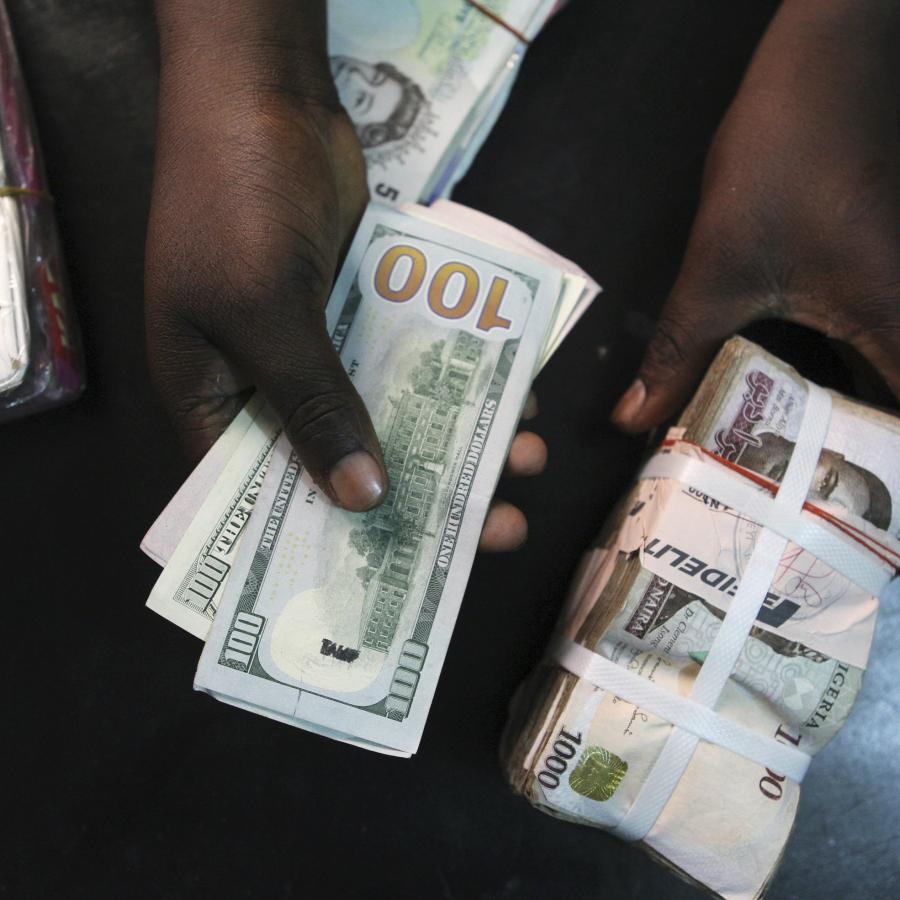The Nigerian central bank will be unable to maintain the naira’s value for much longer as a slump in oil prices drains foreign reserves, according to a Bloomberg survey of investors and analysts.
Seven of 16 respondents expect the currency to be devalued in the third quarter, while four forecast a downward adjustment as early as the second quarter. Another three foresee a devaluation in the fourth quarter and two next year.
Oil prices collapsed this week after the world’s biggest exporters failed to agree on how to respond to a drop in demand as global economic growth slows because of the spreading coronavirus. Nigeria is Africa’s top crude producer.
Since the virus first appeared in China late last year, the naira has weakened 1.3% on the spot market to 366.63 per U.S. dollar. The currency’s decline picked up pace in February, when reserves fell more than 4.5% to $36.1 billion.
Nigerian central bank spokesman Isaac Okorafor declined to comment on the survey. Nigerian presidency spokesmen Femi Adesina and Garba Shehu didn’t respond to emailed requests for comment and neither answered calls to their mobile phones.
Although the naira is at its weakest since August 2017, when it was last devalued, it has traded in a narrow range in that period under the management of the central bank.
“If the base and bear case scenarios play out, it’s difficult to imagine the Central Bank of Nigeria being able to hold the currency at these levels,” analysts at FirstRand Ltd.’s Rand Merchant Bank wrote in a research note. They estimate the naira is 17% overvalued.
The central bank will likely opt for a devaluation of between 10% and 15%, according to 10 of the survey participants. Four expect a devaluation of between 5% and 10% and the rest foresee an adjustment of at least 20%. A previous survey conducted in February forecast the naira wouldn’t be devalued until 2021.
Concerns of a devaluation have also weighed on Nigerian stocks. The benchmark index in Lagos fell 1.8% on Thursday, taking its decline in the past five days to more than 12% and dragging the gauge to levels last seen in early 2016.
Reserves Burned
To keep the naira stable, central bank governor Godwin Emefiele has burned through a quarter of the nation’s reserves since June. He’s also restricted importers’ access to hard currency and stepped up the sale of high-yielding government debt known as OMO bills.
The bank could opt for more capital controls to sustain the naira. A stable currency is critical to President Muhammadu Buhari’s plan to revive local industries and wean the economy off oil.
Emefiele has vowed to keep the naira steady, saying in late November that the slide in reserves wasn’t a cause for concern.
“We will not hesitate to deploy additional measures to shield the Nigerian economy from headwinds,” he said at a conference in the capital, Abuja, on Wednesday.
Participants in the survey, conducted March 9-10, included money managers, analysts and economists based in Nigeria and abroad. Most asked for their submissions to remain anonymous.
Oil futures fell more than 30% in New York and London on Monday, the biggest drop since the Gulf War in 1991, before recovering some ground. Crude sales account for about half of Nigerian government revenue and 90% of the nation’s exports.







